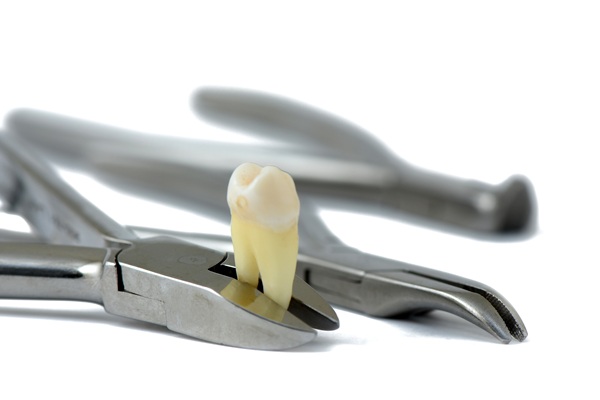How Dental Crowns Are Bonded to a Tooth

Dental crowns are a great way to repair teeth that are damaged by decay or dental trauma, and they are commonly used for a variety of other purposes as well. While many are familiar with what dental crowns are, it can be helpful to understand exactly how they are bonded to a tooth, particularly if you are considering dental crown treatment.
An overview of dental crowns and how they are bonded
The dental crown bonding process generally involves preparing the tooth, taking a dental impression, having the crowns fabricated in a laboratory, and finally bonding it to the tooth. The following review is a more detailed look at what dental crowns are, what situations they are recommended for, and what you can expect before and during the bonding process.
What are dental crowns?
Dental crowns are a type of dental restoration that restores the appearance and function of a tooth as well as protects the tooth from further harm. Also referred to as a “dental cap,” a dental crown covers an entire tooth, whereas most other types of dental restorations only repair a portion of the tooth. There are different types of dental crowns, including ceramic crowns, porcelain-fused-to-metal crowns, metal alloy crowns, and gold crowns.
When are dental crowns used?
There are a number of reasons why dental crowns may be used. In general, they are recommended when a tooth needs to be strengthened due to some form of damage that is beyond what smaller restorations can repair. Some of the more common reasons a dentist may recommend the use of dental crowns are:
- To address chips and cracks
- Strengthen a weakened tooth
- Improve the appearance of a stained tooth
- Protect a tooth after root canal therapy
- Complete the dental implant (tooth replacement) process
From dealing with dental trauma incidents to replacing a lost tooth due to oral health concerns, there are many uses for a dental crown within dentistry.
How are dental crowns bonded to teeth?
Now that we have provided a general overview of what a dental crown is and why it is used, let’s review how they are bonded to teeth. In simplest terms, dental crowns are bonded to teeth through the use of a strong dental adhesive that cements the crown onto the tooth. Of course, there are multiple steps involved before the bonding of dental crowns, such as preparing the tooth (which may involve a minor amount of tooth shaving), taking an impression of the tooth, and having the crown customized to ensure the optimal size in a laboratory.
Patient FAQs about dental crowns
Here are several answers from a dentist about dental crown restoration. Of course, it is always recommended to discuss your specific situation with a dental professional.
What are the alternatives to dental crowns?
Dental crowns are great at restoring various types of tooth damage. There may be other restoration options that are available as well, depending on the severity and location of the tooth that is being repaired. Most notably, the alternative options to dental crowns are dental veneers and dental bonding; tooth replacement may also be an option for repairing severely damaged teeth.
How do dental crowns compare with alternative solutions?
Dental crowns are often the recommended solution for repairing damaged teeth because they offer an easy restoration process and provide reliable long-term support. They are also usually more affordable than dental veneers. However, in some cases, veneers or dental bonding may make a more appropriate solution, particularly if the issue that is being addressed is primarily cosmetic and only affects the visible surface of front teeth.
How long do dental crowns last after they are bonded to a tooth?
Dental crowns are incredibly durable, and they should last for at least five years and often last more than 15 years. There are different material options for dental crowns that may affect their durability (metal or gold alloy crowns usually last longer). The location of the tooth may affect its durability as well. For example, a crown on a molar that is commonly used for chewing purposes may wear down faster.
Do you need a dental crown?
If you have a damaged tooth that is in need of repair, then call our dental office today. We can help you restore the appearance, health, and function of your damaged tooth with a dental crown or alternative restoration that meets your treatment preferences and goals. Give us a call today to schedule a visit.
Request an appointment here: https://www.myddsny.com or call Inna Goykman-Amir DDS at (718) 416-6364 for an appointment in our Brooklyn office.
Check out what others are saying about our dental services on Yelp: Dental Crowns in Brooklyn, NY.
Related Posts
A porcelain crown is a versatile dental restoration that protects and preserves damaged, weakened, or decayed natural teeth. By encasing the visible portion of a tooth, a porcelain crown restores its function, strength, and appearance. This treatment effectively saves a natural tooth from further damage, ensuring long-term oral health and maintaining the aesthetics of your…
Dental crowns can treat many different concerns. They can repair damaged teeth, attach to dental implants for teeth replacement, and more. Two of the main types of dental crowns are metal and porcelain crowns. Both are effective solutions, but one may be preferable to another depending on the intended purpose.Your dentist should help you decide…
Dental crowns and veneers can both restore the function and appearance of damaged teeth. That damage can take the form of decay, discoloration, chips or cracks, or a crooked appearance. The main difference is that a crown goes over the whole tooth, whereas a veneer only sits on the front. Beyond that, there are pros…
Dentists use dental crowns to preserve the integrity of the remaining natural dental structure. There are cases when cavities keep getting worse. Lack of routine dental checkups and poor dental care can lead to deeper cavities. This often leads to larger fillings with each dental check. If you want to know how dental crowns can…


